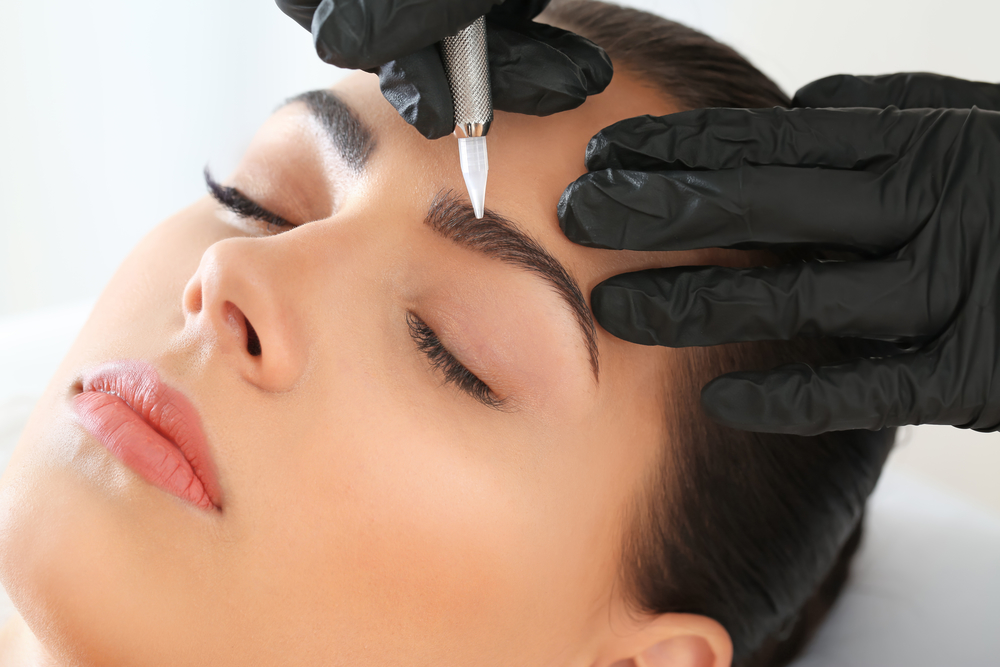Exploring The Hidden Dangers of Talcum Powder

Talcum powder is a common household product with many uses. It can be used as a deodorant, body powder, and even to absorb moisture on your skin. However, despite its popularity and wide use in the past few decades, you may not be aware of certain risks of talc use.
Lately, you must have heard about the implications of using Johnson & Johnson. Per a BBC article, the company has decided to pay $9 billion to resolve thousands of lawsuits in North America that it faces for triggering cancer.
The good news is that safer alternatives are available today, which will help you avoid these health risks associated with talcum powder use.
Talcum Powder Comes With a Long List of Health Risks
Talcum powder is a mineral that comes from talc ore. It’s been used for generations as a cosmetic and hygiene product since ancient Egypt. Talcum powder is commonly used in baby and adult body powders and is an ingredient in many household products such as makeup, soap, and shampoo. In fact, a market report shows that the global talcum powder sector reached USD 2.8 billion in 2021.
Talc has been linked to cancer when inhaled or swallowed. Studies have shown that people who work with talc-containing products have higher rates of lung cancer than those who don’t work with them. These studies found an association between using these products at home and developing ovarian cancer.
The risk of using talcum powder is so high that there is already a lawsuit against talc manufacturers like Johnson & Johnson. If you have faced any complications, you can also file the Johnson & Johnson Talcum Powder Lawsuit with the help of a lawyer.
For hiring the right lawyer, you can look at the awards and recognition the attorney or the firm has. The thing is that many organizations give awards to lawyers and law firms who have performed exceptionally well throughout their journey.
For example, TorHoerman Law has received multiple awards from organizations like Elite Lawyer, Expertise.com, Super Lawyer, etc. Likewise, you can also check a company’s testimonials. Again taking the same example, law firms like TorHoerman Law adds testimonials from previous clients on their website.
Talc and Skin Irritation
Talcum powder can cause skin irritation and rashes. This is because talcum powder contains tiny particles of talc, which are so small that they can penetrate your skin. When these particles come in contact with moisture in your body, they dissolve and release chemicals into the air that irritate the lungs and respiratory system.
In addition to causing breathing difficulties, talcum powder can also lead to serious skin problems such as redness or itching. This is often referred to as an allergic reaction. In some cases, severe reactions may result in hives or blisters breaking out over large body areas, even when not using asbestos products.
Talc can also lead to atopic dermatitis, a common problem in the US. Data from the American Academy of Dermatology Association shows that 1 in 10 Americans have the most common form of skin allergy, Atopic Dermatitis.
Talc and Ovarian Cancer
Talc is a mineral found in the earth and can be used to make many products. It’s been used for thousands of years as a cosmetic product and has been linked to ovarian cancer. Ovarian cancer is women’s fifth most common cancer, with about 22,000 new cases diagnosed yearly.
Ovaries are two small organs on either side of your uterus, producing eggs during ovulation. They also release hormones that control your menstrual cycle and pregnancy.
There’s no clear answer to what causes most types of ovarian cancer. However, some risk factors may increase your chances: The estimate for 2023 is that almost 13,270 women will die of Ovarian cancer.
Talc and Infertility
Talc is a mineral that’s been used in cosmetics for centuries. It was originally used to dry out excess oils on the skin, which helped prevent acne and other skin problems. Talc can also absorb moisture, making it useful for keeping skin soft and smooth.
In recent years, talcum powder products have been linked with ovarian cancer and other health issues. In fact, there are several studies suggesting that talcum powder may cause infertility in women who use it regularly.
In addition to causing fertility issues like ovarian cysts or endometriosis, talc has been linked with fibroids and pelvic inflammatory disease, two conditions affecting millions of American women yearly.
Talc and Mesothelioma
Mesothelioma is a rare form of cancer that develops in the mesothelium, which is the tissue that covers many of your internal organs. Asbestos exposure is one of the most common causes of this disease. It’s important to note that talc and asbestos are both soft minerals: they both occur naturally and can also be found together in some talcum powders from certain regions.
Asbestos exposure has been linked with several types of cancer, including lung, laryngeal, and ovarian cancer. However, there isn’t enough evidence yet linking asbestos with mesothelioma, but it’s still important not to take chances by using talcum powder containing asbestos on yourself or your loved ones.
The Role of Regulatory Agencies
When it comes to regulating talc, the FDA has a lot on its plate. The agency is responsible for ensuring that cosmetics are safe, but it does not regulate personal care products or ingredients like talcum powder. So how does this affect you?
The EPA regulates inhalable dust and fibers under the Clean Air Act (CAA). The CAA requires manufacturers of mining operations to control crystalline silica levels in mines under their control.
Suppose you’re exposed to respirable crystalline silica in your workplace through mining or construction activities. In that case, your employer must provide you with appropriate respiratory protection, such as dust masks, to protect against adverse health effects such as silicosis or lung cancer.
The CDC advises that women diagnosed with ovarian cancer should not use talcum powder internally, either topically or orally, because it may contribute to an increased risk of developing ovarian cancer. However, there is no evidence linking talcum powder use externally on genital areas and increased risk of developing ovarian cancer.
Alternatives to Talcum Powder
- Cornstarch: Cornstarch is a natural powder that can be used as an alternative to talcum powder. It’s available in most grocery stores and pharmacies and can help absorb moisture and prevent chafing or rashes.
- Baking Soda: Another common household item with multiple uses is baking soda. This product has been shown to reduce odors when applied directly onto the skin after bathing or showering.
Conclusion
With all of the information we’ve covered, it’s clear that talcum powder is not a safe product. In fact, it can cause serious health problems such as ovarian cancer, infertility, and mesothelioma. Suppose you use talcum powder regularly and have experienced any of these illnesses or conditions. In that case, you must speak with your doctor about getting tested for them immediately.
Recent Posts
 What are Some Common Mistakes to Avoid While Trimming Your Beard?
What are Some Common Mistakes to Avoid While Trimming Your Beard? A Guide to Updating Your Skincare Routine for Summer
A Guide to Updating Your Skincare Routine for Summer 5 Things To Keep In Mind When Ordering From A China Hair Factory
5 Things To Keep In Mind When Ordering From A China Hair Factory Why Moisturising Your Hands Is So Important?
Why Moisturising Your Hands Is So Important? What Is Your Curl Pattern Type, And How Do You Deal With It?
What Is Your Curl Pattern Type, And How Do You Deal With It? Dermal Fillers: What Are Dermal Fillers, How Are They Used, And Who Uses Them?
Dermal Fillers: What Are Dermal Fillers, How Are They Used, And Who Uses Them? How Filorga Optim Eyes Works
How Filorga Optim Eyes Works Reverse Balayage: A Low Maintenance Cost For Beauty in Winter
Reverse Balayage: A Low Maintenance Cost For Beauty in Winter Shape the Brows with efficient Eyebrows Tinting
Shape the Brows with efficient Eyebrows Tinting Different Types of Hair Extensions
Different Types of Hair Extensions
